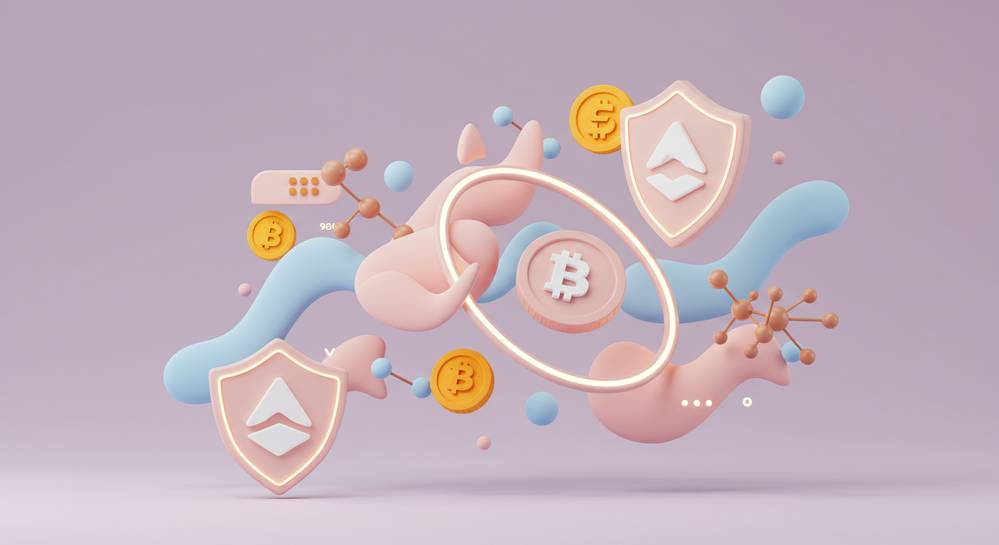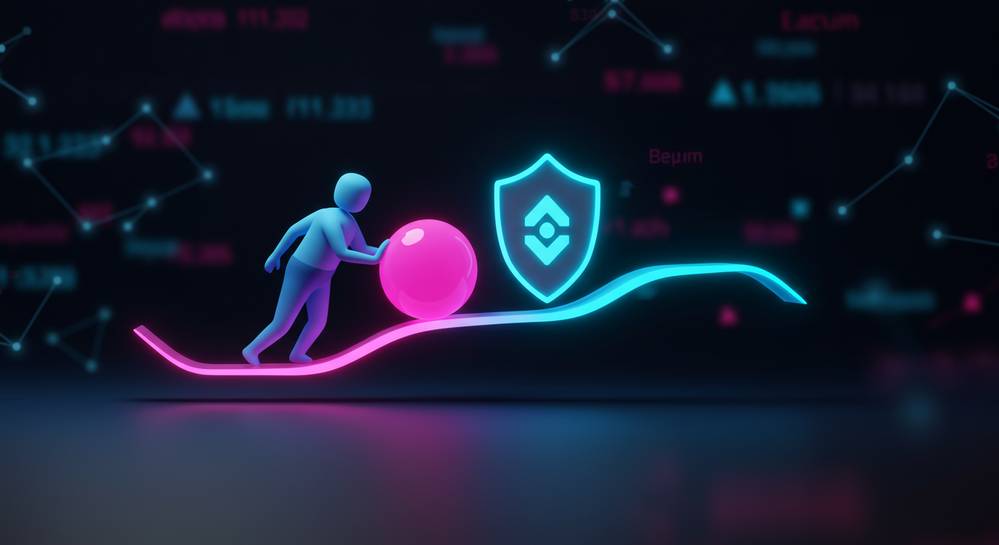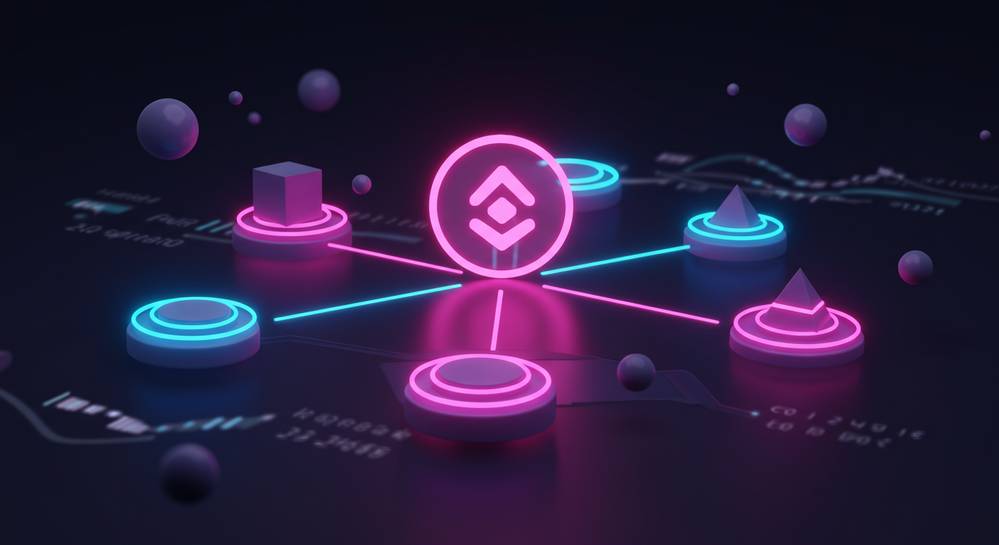Welcome to the financial revolution. You’ve heard the buzz, now let’s dive deep into what is decentralized finance (DeFi)? It’s money’s new playbook – no banks, no suits, just codes and community. Here, I’ll walk you through the guts of DeFi. Think of it like your money, but with superpowers – it earns more and moves faster, all without asking anyone for permission. Hold tight, as I pull back the curtain on this game-changer.
The Essence of Decentralized Finance (DeFi)
Unpacking the Core Elements of DeFi
Understanding DeFi and How it Differs from Traditional Banking
What you need to know is DeFi changes how we deal with money. Unlike typical banks, where all actions go through one point, DeFi spreads them out. This means no one place or person holds all the power. It’s like having a group project where everyone gets a say, not just the one kid with the loudest voice.
DeFi operates on technology called blockchains. You’ve likely heard of Bitcoin and Ethereum. These are types of blockchains that make DeFi work. With them, DeFi creates a system where you can save, borrow, lend, or trade without needing a middleman like a bank. Imagine being able to lend money to a friend, and a computer program makes sure you get paid back with interest. That’s how DeFi works.
The Role of Smart Contracts in Facilitating DeFi Operations
Now, let me tell you about smart contracts. They are like deals you make, but these deals run on their own once they’re set up. If certain things happen, the smart contract will do what it’s supposed to do. No need to nudge someone to hold up their end of the bargain—it’s automatic.
Say you want to borrow in DeFi. Smart contracts are the keys that unlock this door. When you put up something valuable, like crypto, smart contracts step in. They hold your crypto and let you borrow money. If you pay it back, your crypto comes back to you. If not, the contract keeps it. It’s fair and square, no ifs, ands, or buts.
Understanding DeFi isn’t just cool; it’s smart. You get to be your own bank, in a way. But don’t forget, it’s new and can be risky. Money can be lost if things go wrong. So, when you dive into DeFi, keep your eyes open and learn as you go.
In DeFi, moving your money works fast, it’s open around the clock, and you can see everything happening live. DeFi lending platforms are part of this, too. They’re places on the internet where you can lend out your crypto and earn interest—like a savings account, but often with better rates!
Talking about interest, DeFi interest rates can be really good. But remember, high rewards can come with high risks. It’s like climbing a tree to get the best apples. The higher you climb, the juicier the fruit, but the harder the fall if you slip.
So, what’s in it for you, right? Earning yield in DeFi could mean more money in your pocket. When you lend out your crypto, you get paid for it. This is similar to how a bank pays you interest for letting them use your money. Yet with DeFi, you’re in the driver’s seat.
In conclusion, DeFi is an exciting world where finance is getting a techy makeover. It’s about taking control of your money and saying goodbye to the old way of banking. You’ll need to buckle up, because understanding DeFi is just the start of a wild ride. But with smart contracts and blockchain, you’ve got the best tools for the trip. Welcome to the new age of money!
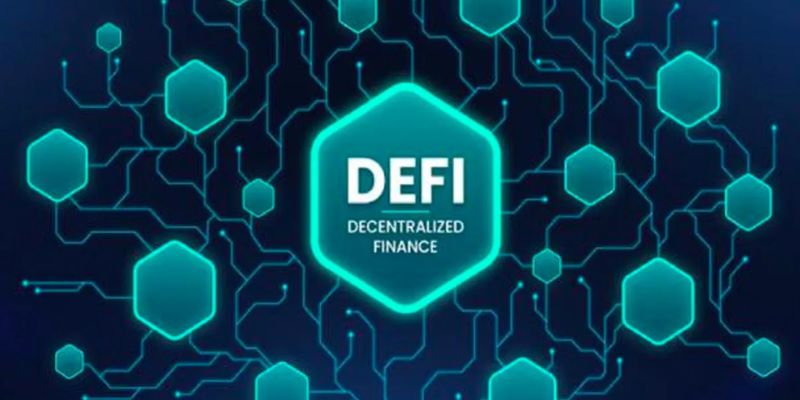
The Mechanics of DeFi: Platforms and Processes
Exploring DeFi Lending Platforms and Liquidity Pools
Lending money and getting loans in DeFi is fun and easy. You lend your coins to a platform and get interest. To get a loan, you offer other assets you own as a promise to pay back.
How Borrowing and Interest Rates Operate in a Decentralized Context
Borrowing in DeFi works through smart contracts. These are like automatic agreements that handle your loan without needing a bank. Interest rates vary; sometimes they change fast based on how many people want to borrow or lend.
Navigating Decentralized Exchanges (DEXs) and Stablecoins
A DEX lets you swap different kinds of digital money without using a middleman. This means you trade directly with others. Stablecoins are special coins that try to stay at the same value, like a dollar. They’re used a lot in DeFi to make trading smoother.
In the world of DeFi, you are your own boss. Unlike banks, where everything is hidden, DeFi is like an open book for all to read. You deal with lending platforms and liquidity pools, which are like big digital piggy banks where everyone’s money works together.
Now, let’s talk precision. Smart contracts, not humans, make sure loans work right in DeFi. Interest rates go up and down based on supply and demand. It’s all clear and fair, no sneaky business.
DEXs are the new cool hangouts in blockchain towns where coins change hands fast. There’s no waiting in line. You swap your coins at any time, even in your pajamas. And stablecoins? Think of them as the steady hands in a world where prices zip and zoom like race cars.
When you put your digital dollars into DeFi lending, you’re earning interest, yeah, but you’re also helping others. Others can borrow your coins to start businesses or make their dreams real. You’re part of a money revolution, my friend.
Getting into DeFi means taking control. You can invest, grow your cash, and even protect it better than ever. And while there are risks, like with anything worth doing, DeFi is also about the community having each other’s backs.
In DeFi, your money is no longer just sitting around. It’s active, it’s helping, and it’s part of a big change. We’re making the rules, not just following them. And that’s just the start of how DeFi is rewriting the rules of money.
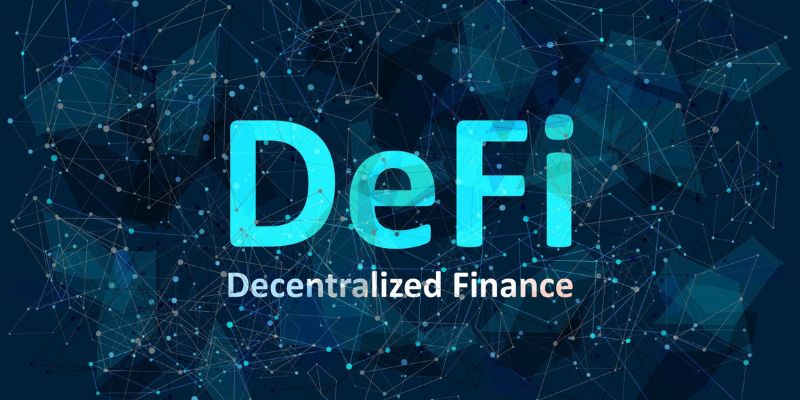
The Strategic Side of DeFi Investment
Crafting Effective DeFi Investment Strategies
Investing in DeFi is like a game of chess. You need a solid strategy. DeFi can make people lots of money. But it can also be tough. Understanding DeFi, blockchain, and smart contracts can help one make wise moves.
Yield Farming Tactics and Optimizing Earning Potential
Yield farming is a way to earn more crypto with your crypto. It’s like putting money in a bank to get interest. But with crypto, the interest can be a lot more. When you lend your funds or invest in liquidity pools on DeFi platforms, you get rewards. These rewards boost your crypto stack over time.
To do this well, you need the right farm. You look for pools with good interest rates. You must also check what they give you. Sometimes it’s new tokens. Sometimes it’s fees from trading. With the right mix, you can get a steady flow of earnings.
DeFi interest rates change often. New farms pop up all the time. So, you must stay sharp. Always look for the best deals. Think of yield farming as a tool. A tool that can grow your wealth if you use it right.
Addressing Risks and the Importance of DeFi Insurance Services
DeFi is not all easy. It can be risky. There are ways to lower these risks though. One way is DeFi insurance services. They are like safety nets. They help protect your money if something bad happens.
DeFi insurance covers many things. Hacks and bugs are on the list. So are problems with smart contracts. Think of it like car insurance. You hope you won’t need it, but you’re glad it’s there if you do.
When you use insurance in DeFi, you’re playing it smart. You’re telling the world you understand risks. And you’re ready to beat them. It’s all about staying one step ahead.
Building a DeFi strategy is an art. You need skill and knowledge. Embrace the world of DeFi with open eyes. Look for the best places to earn yield. Use the tools you have, like insurance, to stay safe. That’s how you win in the world of decentralized money.
Innovation and Growth Within DeFi
The Evolution of DeFi Market Growth and Scalability Solutions
DeFi has grown so fast, it’s hard to keep up. Remember when the internet started? That’s how fast. Just like more websites made the internet better, more DeFi apps do the same for finance. It’s finance without the middleman, powered by blockchain. Quick, safe, and smooth. Like sending an email, but it’s money, not words.
DeFi systems need to handle more users. It’s like a party; you need more space as more friends show up. Many smart people are working on DeFi scalability solutions. These make sure DeFi can grow big and still work well for everyone. It’s a bit like building bigger roads so that more cars can drive fast without hitting traffic.
But making DeFi bigger comes with challenges. Everyone needs to trust the system, and it has to be secure. Nobody wants a finance system that’s easy for bad guys to cheat.
The Significance of DAOs in DeFi Governance
DAOs are really cool. They let everyone who has tokens make decisions together. Think of it as a big group chat where everyone votes on what to do next. DAOs can decide how a DeFi project will change over time or how to use the money it makes.
Having a DAO means no boss doing whatever they like. It’s fair because everyone has a say. That’s important in DeFi, where trust is a must. DAOs help make sure DeFi stays open and honest for all.

DeFi Security Measures and User Adoption Strategies
Security in DeFi is super serious. You know locks on doors? Well, DeFi needs strong locks too. These are called security measures. They protect money and personal info from hackers. DeFi makers use things like audits and bug bounties to find and fix any weak spots. Think of them as superhero teams that keep your DeFi safe.
For more folks to use DeFi, it has to be easy. Wallet integration helps a lot. Imagine having a magic pocket that lets you use your money anywhere in the DeFi world. That’s what wallets in DeFi do. You just connect your wallet, and you’re ready to join the finance revolution.
DeFi is amazing because it turns the old rules of money on their head. Everyone’s welcome, not just banks or rich people. It’s a new world of making and using money that’s exciting and growing each day. DeFi can feel like a wild ride sometimes, but for those who buckle up and dive in, it can be a real game changer.
We’ve dived deep into DeFi’s world, showing how it’s reshaping finance. We explored core elements and compared it with old-school banks. Smart contracts stood out as DeFi’s backbone, enabling operations without middlemen.
We then unpacked the mechanics, like borrowing from lending pools and using DEXs. We studied interest rates and stablecoins, key parts of the DeFi machine.
Investment strategies came next. Yield farming was a highlight, with a smart look at risks. We spotted how DeFi insurance can guard our coins.
Finally, we tackled DeFi’s growth and innovation. We learned how DAOs lead in DeFi and saw how top-notch security can pull more people on board.
To sum it up, DeFi’s not just a buzzword; it’s a finance revolution in full swing. Tech that’s open, where anyone with internet can hop in and play. It’s breaking barriers, making us rethink money’s future. It’s clear, it’s potent, and friends, it’s here to stay. Keep a sharp eye out, stay wise, and you might just surf the DeFi wave to success.
Q&A :
What Exactly Is Decentralized Finance (DeFi)?
Decentralized finance, or DeFi for short, is an emerging financial technology based on secure distributed ledgers similar to those used by cryptocurrencies. The system removes the control banks and institutions have over money, financial products, and financial services. By using smart contracts on the blockchain, DeFi allows individuals to lend or borrow funds, trade cryptocurrencies, insure against risks, and earn interest in a savings-like account without the need for a traditional financial intermediary.
How Does DeFi Differ from Traditional Banking?
Unlike traditional banking, DeFi platforms operate without a central service controlling the entire system. This means there are no physical locations like there are with banks, and the services are available to anyone with an internet connection. Transactions in DeFi are transparent and immutable due to the use of blockchain technology, offering a level of security and openness that traditional banks can’t match. Users hold their assets in digital wallets, not bank accounts, giving them full control over their financial dealings.
Can You Earn Interest Through DeFi Platforms?
Yes, one can earn interest through DeFi platforms. These platforms offer various ways to earn passive income, including yield farming, liquidity mining, and staking. By providing liquidity to a DeFi protocol or lending out your assets, you can earn interest, often at rates much higher than what traditional savings accounts offer. However, the increased potential returns also come with higher risks due to the volatility of the cryptocurrency markets and potential vulnerabilities in smart contract code.
What Risks Are Involved With DeFi?
DeFi, while innovative and promising, carries its set of risks including smart contract vulnerabilities, regulatory uncertainty, and high market volatility. Since DeFi is built on technology that is still relatively new, there is a risk of bugs in the code that can be exploited by hackers. Furthermore, the lack of regulatory clarity can affect the stability and legitimacy of DeFi services. Market volatility can lead to significant asset price fluctuations, increasing the risk of loss for participants.
Is DeFi Secure?
Security in DeFi depends on the robustness of the underlying smart contracts and protocols. While these are typically created to be secure and tamper-proof, the potential for coding errors or vulnerabilities can exist, which, if exploited, can lead to losses. DeFi platforms themselves put a heavy emphasis on security, but it’s essential for individuals to perform their due diligence and understand the protocols they are interacting with. Moreover, since DeFi cuts out traditional financial intermediaries, users must take full responsibility for their security measures, like safeguarding private keys.

